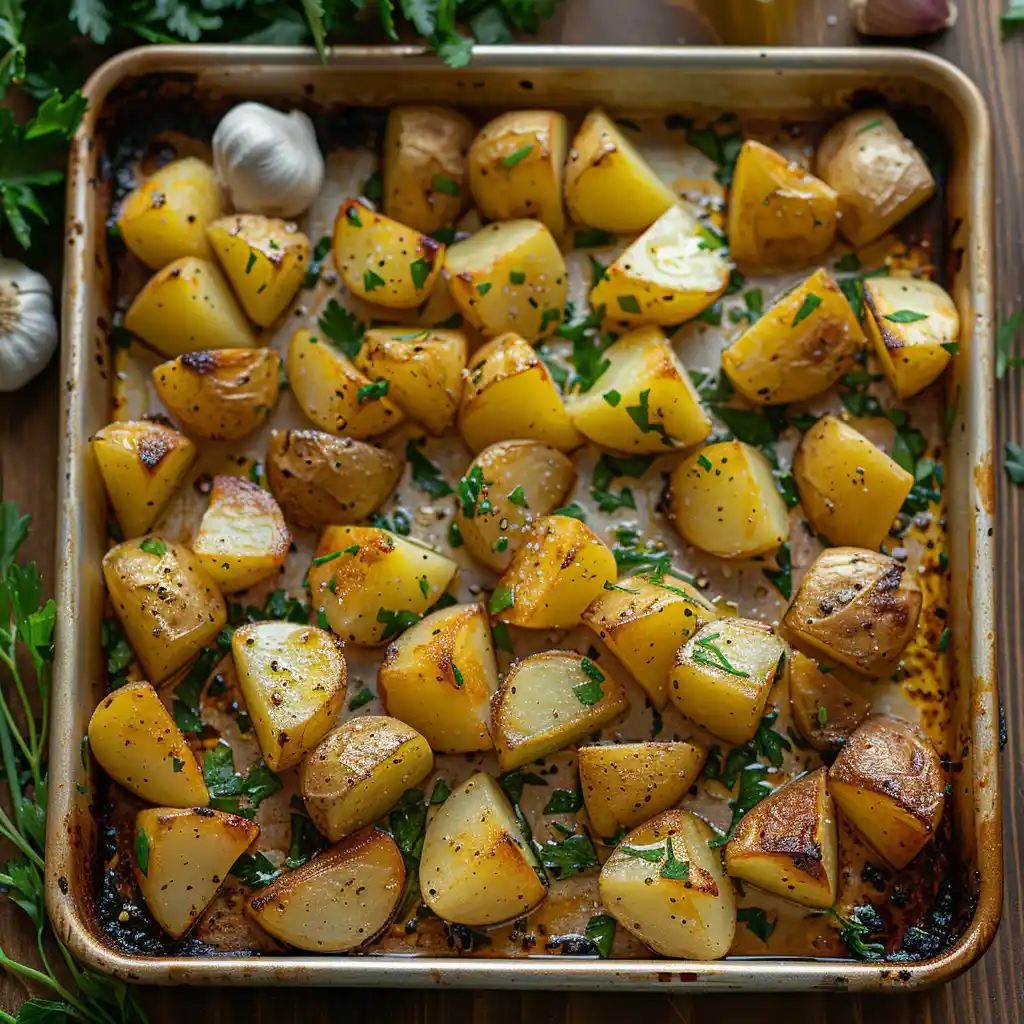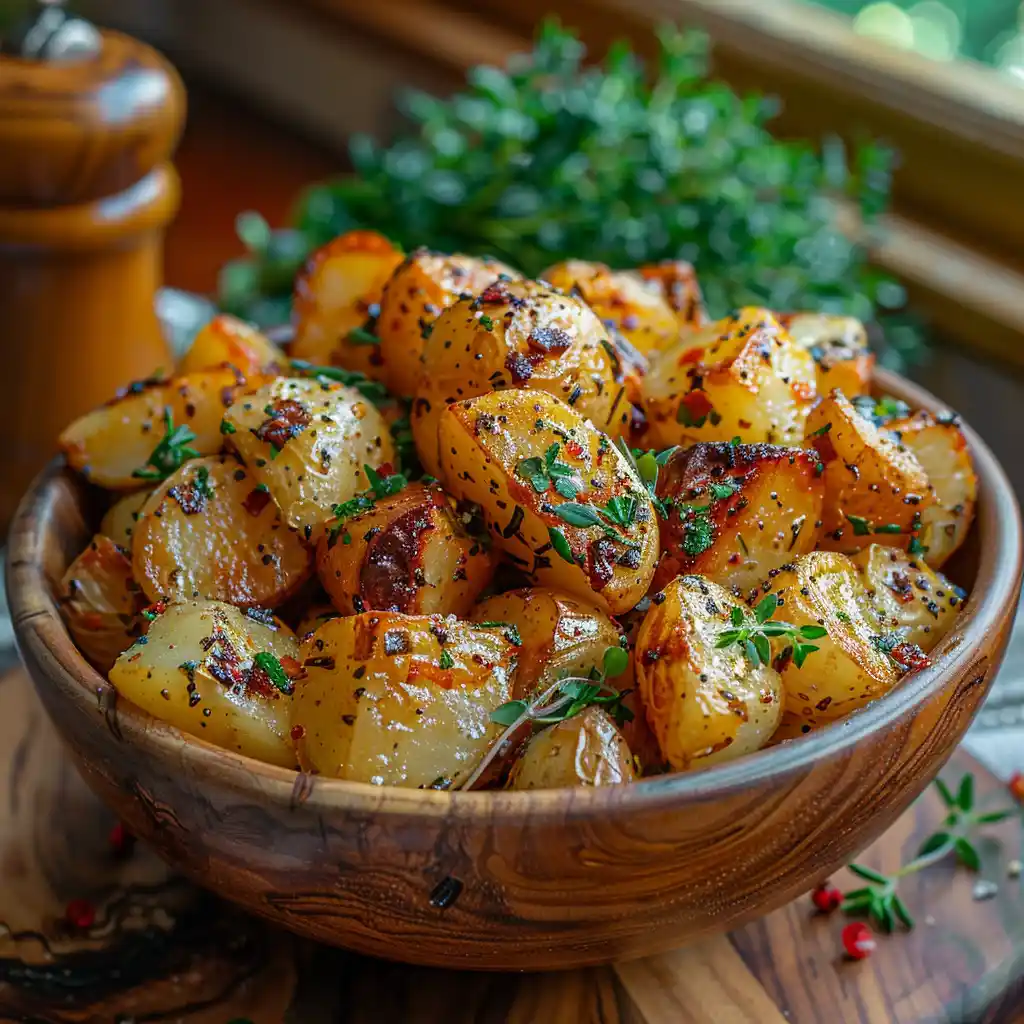Potatoes are one of the most versatile ingredients in global cuisine, yet not many dishes come with a name that pays homage to a historical figure. Parmentier potatoes are a delightful French dish named after a man who changed the way people viewed this humble tuber. But why are they called Parmentier potatoes? This article will uncover the fascinating history of Antoine-Augustin Parmentier, the man who championed the potato during a time when it was shunned, explore how his efforts turned the potato into a culinary staple, and highlight how this dish became a lasting symbol of his legacy.
Origins of Parmentier Potatoes
Introduction to Antoine-Augustin Parmentier
Antoine-Augustin Parmentier, born in 1737, was a French agronomist, pharmacist, and food scientist with a mission: to change the perception of the potato in Europe. During his lifetime, potatoes were considered unfit for human consumption. They were believed to cause diseases and were mostly used to feed livestock. Yet, Parmentier saw their potential as a solution to food scarcity.
In the aftermath of several European famines, he became a staunch advocate for the potato. His research revealed that potatoes were nutritious, easy to cultivate, and could sustain a growing population during difficult times. Through his efforts, the potato transitioned from a rejected crop to a beloved staple.
Early European Views on Potatoes
The potato’s introduction to Europe in the late 16th century wasn’t met with enthusiasm. Imported from South America, it was initially viewed with suspicion. In fact, many Europeans associated potatoes with leprosy due to their growth in soil, which was considered “unclean.” Farmers were hesitant to grow them, while society largely rejected them as food.
Despite these challenges, the potato survived in small pockets of Europe, used primarily to feed livestock or as a famine fallback. By the time Parmentier entered the scene, potatoes were far from the culinary status they hold today.
The French Famine and Parmentier’s Advocacy
The famine of the late 18th century in France set the stage for Parmentier to introduce his potato advocacy. With food shortages threatening entire communities, Parmentier demonstrated how potatoes could be a lifesaver. He conducted scientific experiments to prove their nutritional value and even gained the support of King Louis XVI, who became a vocal supporter of the potato revolution.
Parmentier’s advocacy didn’t stop there—he was a master marketer. To change public opinion, he organized lavish banquets where guests dined on potato-based delicacies. These events showcased how this unassuming crop could be transformed into gourmet dishes. As the famine subsided, the potato had secured its place as a sustainable food source, thanks in no small part to Parmentier’s efforts.
The Role of Antoine-Augustin Parmentier in Naming the Dish
Why Parmentier Potatoes Are Named After Him
The name “Parmentier potatoes” honors Antoine-Augustin Parmentier, a man whose tireless efforts reshaped the reputation of the potato. During the late 18th century, potatoes were viewed with disdain and often associated with disease and poverty. However, Parmentier saw the potato’s potential to combat famine and improve nutrition in France. Through advocacy, scientific research, and public campaigns, he showcased the potato as a viable food source for humans.
In recognition of his dedication, culinary dishes featuring potatoes were named after him. The term “Parmentier” became synonymous with potato-based creations, a tribute to the man who made them acceptable—and eventually celebrated—on French tables.
The Naming Process and Culinary Significance
But how did Parmentier’s name become linked to these dishes? The shift wasn’t accidental. Parmentier was strategic in his efforts to popularize potatoes. For example, he hosted banquets for influential figures, serving dishes made entirely of potatoes. One particularly famous event was held for King Louis XVI and Queen Marie Antoinette, which helped secure royal endorsement. Parmentier’s inventive marketing turned the potato into a symbol of sustenance and culinary creativity.
This association extended to naming conventions. Dishes like Hachis Parmentier, a French version of shepherd’s pie featuring mashed potatoes and ground meat, and Parmentier potatoes, cubed and roasted with herbs, reflect his culinary influence. These recipes weren’t just about taste; they embodied Parmentier’s vision of using potatoes to nourish both the body and the soul.
Dishes Derived From Parmentier’s Influence
Many potato-based recipes owe their legacy to Parmentier. While Hachis Parmentier is the most well-known, other dishes also carry his name. These include potage Parmentier, a creamy potato leek soup, and roasted pommes de terre Parmentier. These dishes remain staples in French cuisine, symbolizing simplicity, flavor, and history.
For readers who enjoy exploring French culinary traditions, you might find more details about Hachis Parmentier in this guide on French classics on TastyFables. Understanding the context behind these dishes adds depth to their preparation and enjoyment.
Culinary Popularity and Evolution
Parmentier Potatoes Across Different Cultures
Today, Parmentier potatoes are celebrated well beyond France. Their simplicity—cubed potatoes roasted with garlic, olive oil, and herbs—makes them universally appealing. Though the name remains a nod to French origins, variations of this dish appear in cuisines worldwide. For instance, in Mediterranean cooking, Parmentier potatoes might include rosemary and thyme, while North American adaptations may add a smoky paprika twist.
The dish’s adaptability is one of its greatest strengths. Whether as a side dish for roasted meats or a standalone vegetarian option, Parmentier potatoes continue to evolve while retaining their French identity.
The Enduring Legacy of Parmentier’s Recipes
What makes Parmentier’s legacy enduring is how his advocacy wasn’t limited to one recipe or style of cooking. He transformed the way society viewed an ingredient. Before Parmentier, potatoes were seen as a “poor man’s food.” Today, they are celebrated in everything from gourmet creations to hearty home-cooked meals. His recipes emphasize the versatility and accessibility of the potato, qualities that keep his dishes relevant in kitchens worldwide.
Moreover, the rustic charm of Parmentier potatoes fits perfectly into today’s culinary trends, which favor minimalism, farm-to-table ingredients, and comfort foods. This timeless appeal ensures Parmentier’s influence will endure for generations.
Parmentier in Modern Cuisine
Modern chefs often reinterpret Parmentier potatoes while staying true to their origins. Creative spins include infusing truffle oil, pairing them with aioli dips, or serving them as tapas. These innovations highlight the dish’s versatility while paying homage to its history.
For a deeper dive into the history and preparation of Parmentier-inspired dishes, visit this feature on French potato recipes. Understanding the roots of these culinary gems can inspire new ways to bring them to your table.
Fun Facts and Anecdotes About Parmentier Potatoes
Parmentier’s Clever Marketing Techniques
Antoine-Augustin Parmentier wasn’t just a scientist; he was great at promoting ideas too. To convince people that potatoes were safe and healthy to eat, he came up with clever tricks. One of his most famous ideas was planting potato fields near Paris and hiring guards to “protect” them. But these guards were told to leave at night, making people think the potatoes were valuable and tempting them to steal. This smart strategy made people curious and interested in potatoes.
Parmentier also hosted fancy dinners where he served dishes made with potatoes to important people. Even King Louis XVI and Queen Marie Antoinette tried these meals, which gave the potato a royal seal of approval. With these creative ideas, Parmentier turned potatoes from a crop people avoided into one they admired and wanted to eat.
Celebrations and Honors for Parmentier
Parmentier’s efforts didn’t go unnoticed. Over time, his name became synonymous with culinary excellence involving potatoes. In France, streets, monuments, and even metro stations are named after him. These honors serve as reminders of his contributions to agriculture, nutrition, and French cuisine.
Interestingly, Parmentier potatoes themselves are a lasting tribute. Their simplicity and elegance reflect the core of Parmentier’s message: that an overlooked ingredient can become something extraordinary. For more about the enduring appeal of French potato dishes, you might enjoy this article on French classics.
Part 5: FAQs About Parmentier Potatoes
What Are Parmentier Potatoes?
Parmentier potatoes are a classic French dish made by roasting diced potatoes with garlic, olive oil, and fresh herbs like parsley or thyme. While simple, their preparation highlights the versatility of the potato, making them a favorite side dish worldwide. But why are Parmentier potatoes so called? The name honors Antoine-Augustin Parmentier, the man who popularized potatoes in France during the 18th century.
Why Are They Called Parmentier Potatoes?
The dish is named after Parmentier because he worked hard to show that potatoes were healthy and affordable. His efforts made him an important figure in food history, and naming dishes after him honors his impact. Recipes like Hachis Parmentier and roasted Parmentier potatoes are a lasting reminder of his contributions.
How Are Parmentier Potatoes Prepared?

Preparing Parmentier potatoes is straightforward yet incredibly rewarding. The key lies in dicing the potatoes into uniform cubes, ensuring even roasting. Toss the cubes in olive oil, season with salt, pepper, and your choice of herbs, and roast them until golden and crispy. Pair them with grilled meats, roasted chicken, or even serve them as a snack with a tangy dip.
If you’re looking to experiment with similar versatile recipes, explore this guide on pairing ingredients with French cuisine.
Who Was Antoine-Augustin Parmentier?
Antoine-Augustin Parmentier was a French food expert and scientist in the 18th century. He worked hard to solve food shortages, especially during famines. His efforts and studies helped people see potatoes as healthy and useful, turning them into a key food in Europe.
What Other Dishes Are Named After Parmentier?
Besides Parmentier potatoes, other famous dishes include Hachis Parmentier, which is like shepherd’s pie, and Potage Parmentier, a potato and leek soup. These recipes show how creative and practical Parmentier was with food.
Conclusion and Parmentier’s Legacy
Parmentier’s Impact on French Cuisine
Antoine-Augustin Parmentier left a legacy that continues to resonate in kitchens worldwide. His efforts to promote the potato didn’t just feed hungry communities during the French famine; they also reshaped culinary traditions. By advocating for this once-maligned crop, Parmentier elevated it to a staple ingredient in French cuisine. Dishes like Hachis Parmentier and Parmentier potatoes serve as delicious reminders of his contributions.
More than just a name on a menu, Parmentier’s legacy lies in his ability to see potential in an overlooked resource. Today, his impact can be seen in both gourmet and everyday cooking, from rustic French meals to inventive global recipes.
The Broader Influence of Potatoes
The potato’s journey from obscurity to ubiquity is largely thanks to Parmentier. This humble tuber now plays a key role in global diets, feeding millions of people across continents. Whether it’s mashed, roasted, or fried, the potato’s versatility and affordability make it indispensable. Parmentier’s advocacy was not just about nutrition—it was about showing the world how simple ingredients could inspire culinary creativity.
For anyone wondering why are Parmentier potatoes so called, the answer is clear. The dish pays homage to a man who changed the course of food history, proving that even the simplest foods can hold incredible value.
Final Thoughts on Parmentier Potatoes
Parmentier potatoes are more than just a side dish. They’re a symbol of innovation, resilience, and the power of food to bring people together. Their story reminds us that history is often found on our plates, and each bite connects us to the past. The next time you enjoy a serving of Parmentier potatoes, take a moment to appreciate the rich history behind this beloved dish.
FAQs About Parmentier Potatoes
Why Are Parmentier Potatoes So Called?
The name “Parmentier potatoes” honors Antoine-Augustin Parmentier, the French agronomist who championed the potato during a time of widespread food insecurity. Parmentier’s advocacy and marketing genius turned the potato from a feared crop into a celebrated ingredient. This dish, along with others like Hachis Parmentier, immortalizes his contributions to French cuisine.
Are Parmentier Potatoes Easy to Make?
Yes! One of the reasons Parmentier potatoes remain so popular is their simplicity. All you need are diced potatoes, olive oil, garlic, and a handful of fresh herbs. Toss everything together, roast until golden and crispy, and you have a versatile dish that pairs beautifully with a variety of main courses.
What Is the History of Parmentier Potatoes?
The dish has its roots in 18th-century France, where Parmentier worked tirelessly to address food shortages. Through his efforts, he proved the nutritional value and versatility of potatoes, which gradually changed public opinion. As a result, naming dishes like Parmentier potatoes after him became a way to honor his efforts and highlight the important role of potatoes in feeding the nation.
Can You Customize Parmentier Potatoes?
Absolutely! The beauty of Parmentier potatoes lies in their flexibility. Add your favorite seasonings or toppings to make the dish your own. Some variations include using truffle oil for an earthy flavor or adding grated cheese for a decadent touch.
What Other Recipes Honor Parmentier?
IIn addition to Parmentier potatoes, other iconic dishes like Hachis Parmentier (a French version of shepherd’s pie) and Potage Parmentier (potato leek soup) also celebrate his lasting legacy. Furthermore, each recipe beautifully showcases the potato’s ability to be both comforting and elegant, making it a true testament to Parmentier’s visionary efforts.
For those seeking more inspiration, exploring related articles on potato-based recipes or dishes with French roots can provide plenty of ideas. Not only do these recipes expand your palate, but they also deepen your appreciation for the historical significance of simple yet versatile ingredients.
In conclusion, these sections emphasize why Parmentier potatoes remain a beloved dish today while highlighting their deep historical and cultural significance. The legacy of Antoine-Augustin Parmentier lives on, not only in French cuisine but also in how we view the importance of innovation in food.h cuisine but in the way we approach food innovation today.

